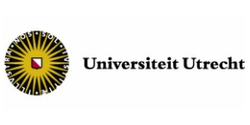PhD: Taking a Detour – How Flexibility Shapes Inequality in Higher Education
Updated: 26 Mar 2025
So many people, so many detours in education. Do you want to study the detours that students take before they enter higher education? And how this affects educational inequality? Check this PhD position!
Your job
In many countries – including the Netherlands – children of highly educated parents are much more likely to also obtain a higher education degree. Most of this inequality does not originate in higher education, but in the trajectories leading towards it. Many students do not take the shortest route to higher education, but move from lower to higher tracks, or first finish vocational education. In this project you study to what extent such detours decrease or increase educational inequality and why that is the case. Can we understand this relationship by what happens at specific decision points in the educational career and characteristics of the educational system? The main focus of the study will be on the Netherlands. The project will use large-scale existing data and may include a small qualitative data collection.
You will have the following tasks and responsibilities:
- conducting the research (literature review, analysing data, reporting results), resulting in international scientific publications and a dissertation;
- possibly collecting qualitative data;
- presenting at national and international conferences;
- maintaining contact with and presenting to stakeholders;
- active participation in activities of the department and the Inspectorate of Education.
Requirements:
We are looking for an enthusiastic candidate, who:
- (almost) has a (Research) Master's degree in Sociology, Interdisciplinary Social Science, or comparable;
- has strong interest in the study of educational inequality;
- has experience with quantitative research and advanced statistical methods;
- enjoys doing research and reporting the results in scientific articles;
- wants to share scientific knowledge with stakeholders and the general public;
- has good social skills and is creative;
- has good writing and presentation skills both in Dutch and English;
- and preferably has knowledge about the Dutch education system.
Salary Benefits:
- A position for one year, with an extension to a total of four years upon successful assessment in the first year;
- a working week of 38 hours and a full-time gross salary between €2,901 in the first year and €3,707 in the fourth year (salary scale P under the Collective Labour Agreement for Dutch Universities (CAO NU));
- 8% holiday pay and 8.3% year-end bonus;
- a pension scheme, partially paid parental leave and flexible terms of employment based on the CAO NU.
In addition to the terms of employment laid down in the CAO NU, Utrecht University has a number of schemes and facilities of its own for employees. This includes schemes facilitating professional development, leave schemes and schemes for sports and cultural activities, as well as discounts on software and other IT products. We also offer access to additional employee benefits through our Terms of Employment Options Model. In this way, we encourage our employees to continue to invest in their growth. For more information, please visit Working at Utrecht University.
36 - 40 hours per week
Padualaan 14

